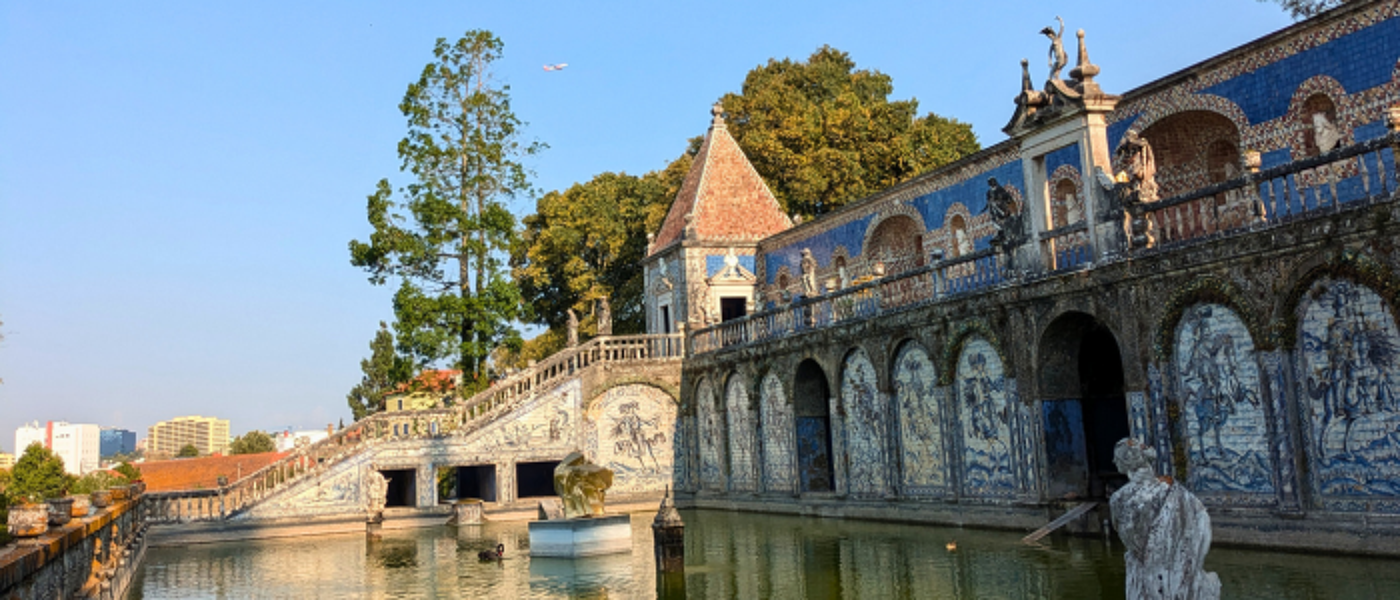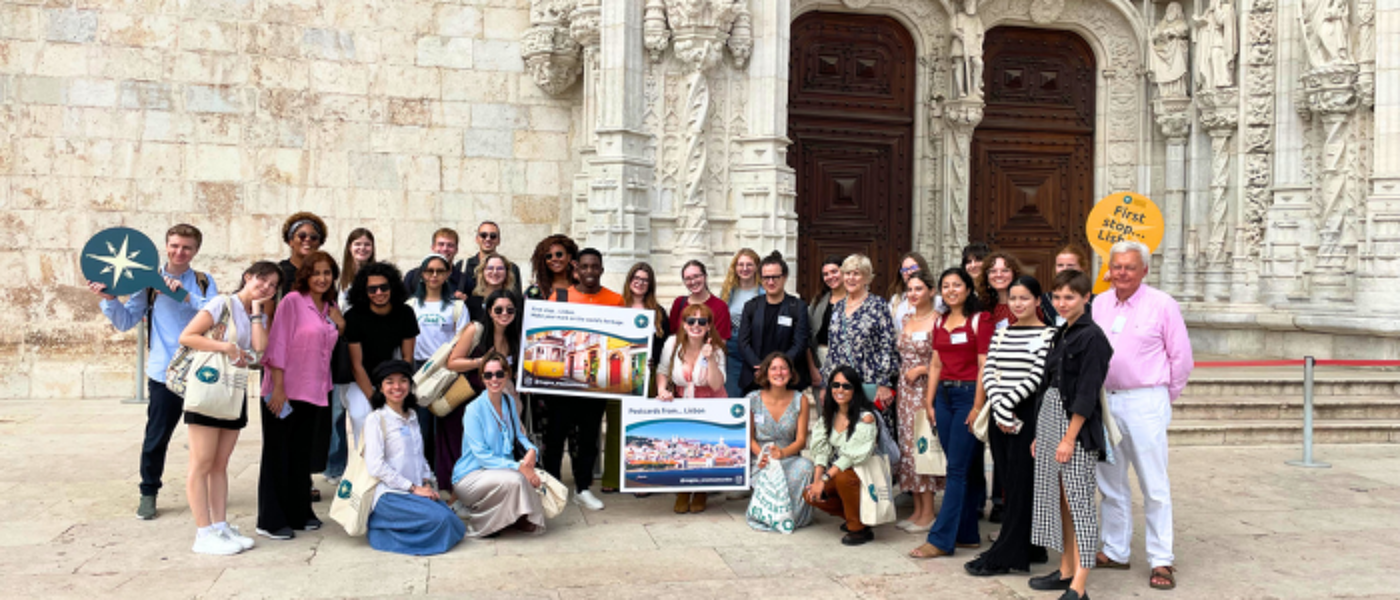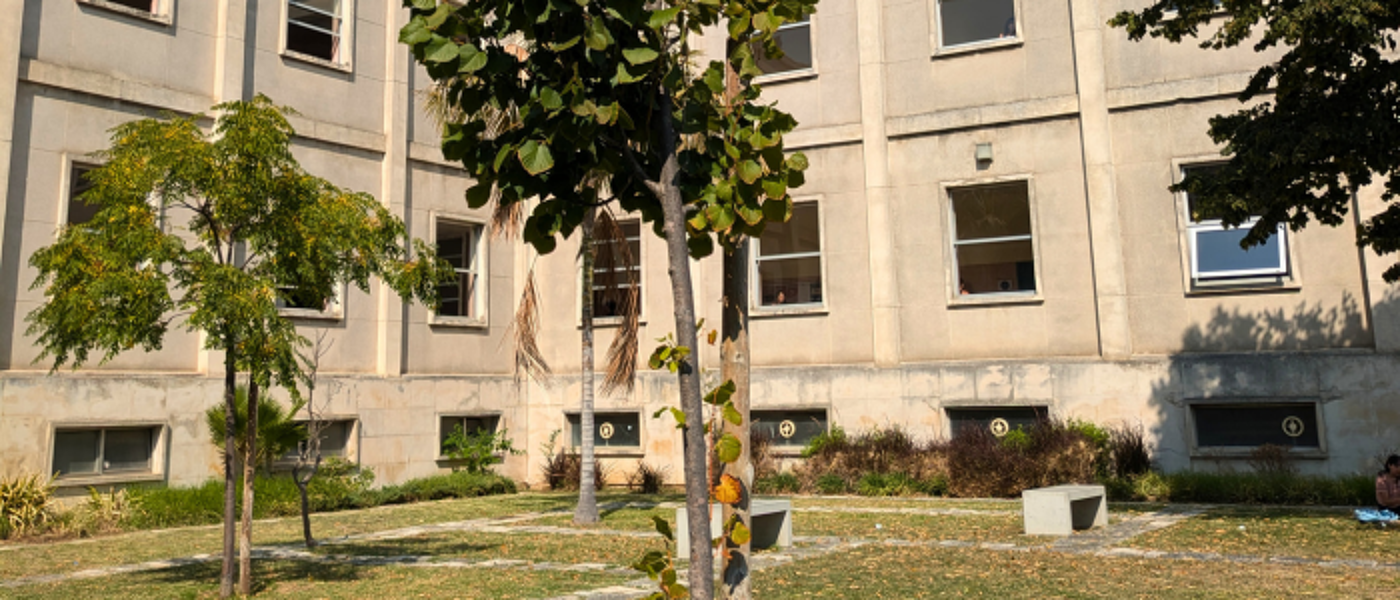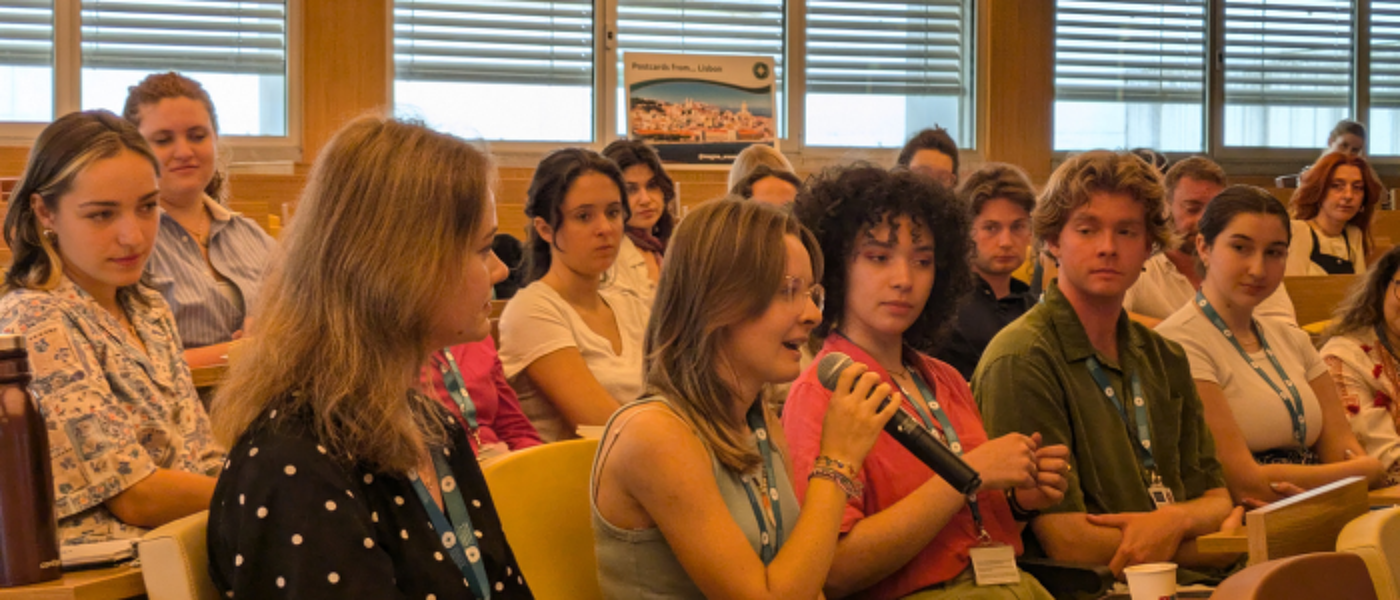Erasmus Mundus Scholarship
The Erasmus Mundus scholarship offers exceptional financial support for the highest-ranked applicants pursuing the MAGMa programme, ensuring a smooth and enriching academic experience.
The scholarship offers recipients a total of €33,600 over the course of the two-year programme. This amount is provided as a monthly stipend to cover travel insurance and living expenses at each mobility destination.
- Tuition Fees: Fully waived for all scholarship recipients.
- Stipend: The €33,600 will be distributed as a monthly stipend. The exact monthly amount may vary depending on the payment option selected, but all students will receive the same total amount over the two years.
Scholarship applications are closed for September 2025 entry.

Scholarship Overview
For the entire duration of the programme, the Erasmus Mundus scholarship covers:
- All Tuition Fees: Tuition fees are fully waived.
- Travel Insurance: Complete travel insurance.
- Monthly Allowance: A monthly stipend to assist with living expenses at each mobility destination.

How to Apply
To apply for the Erasmus Mundus scholarship, you must complete the following steps:
- Visit our How to Apply webpage, and follow Steps 1-4.
- At Step 5, download and complete the MAGMa 2025 Erasmus Mundus Scholarship Application form.
- Upload the completed form to your application simultaneously with your Programme application.
- Follow Steps 6-8.
To be considered for a scholarship, you must submit a complete application with all supporting documents before the deadline.
Scholarship applications for September 2025 entry are now closed. Decisions will be announced in April 2025.

Scholarship Eligibility
To be eligible for a scholarship, you must first receive an offer from the University of Glasgow Admissions to study in the MAGMa programme. You will be contacted via email with either a conditional or unconditional offer.
After offers are issued, all scholarship applications will be forwarded to the MAGMa Consortium, who will collectively assess them as part of the scholarship selection process.
All applicants will be notified of their application outcome in April, including successful, unsuccessful, and high-reserve candidates.

Payment Information
The €33,600 will be distributed as a monthly stipend, and all recipients will receive the same total amount over the two years.
You can choose between two payment options, depending on whether you require an advance to help cover your travel and visa costs. The exact monthly amount you recieve may vary depending on the payment option selected.
Once you accept your scholarship, your Welcome Pack will provide details on how to select your preferred option.
Option 1:
You will receive three advance payments of €1,000 to assist with your visa and travel expenses. These payments will be disbursed at specific points throughout your two years of study:
- €1,000 paid to your existing bank account before the start of Year 1 (August)
- €1,000 paid at the end of Year 1 (May)
- €1,000 paid at the start of Year 2 (September)
Please note that these advance payments will be deducted from your overall scholarship award. Your monthly allowance during the programme will be €1,275.
Option 2:
You will receive a monthly allowance of €1,400 during the programme, with no advance payments for travel or visa costs.

Scholarship Assessment Criteria
The scholarship assessment will be based on the following criteria:
- Academic Merit, Relevance, and Level of Qualifications: 45%
- Level of Academic Qualifications: 20%
- Academic Merit and Relevance: 25%
- Supporting Personal Statement: 30%
- Quality of References: 10%
- Other Relevant Experiences (including research, professional experiences, and interests): 15%
Scholarship Q&A
Watch the University of Glasgow's most recent scholarship Q&A session.
Further Information
Interested in learning more about the Erasmus Mundus Scholarship? Explore some frequently asked questions below.
How is this scholarship distributed among different nationalities?
Students from around the globe are eligible to apply for the scholarship; however, there are limits on the number of scholarships awarded to each nationality to maintain a geographical balance.
We can award up to 90 scholarships across four student intakes:
- Edition 1: 2023-2025 (awarded)
- Edition 2: 2024-2026 (awarded)
- Edition 3: 2025-2027 (applications currently open)
- Edition 4: 2026-2028 (applications open in October 2025)
Regular Scholarships
We have a total of 60 regular scholarships available across the four intakes of the programme. The maximum number of scholarships awarded to any single nationality is 6 (10%) over the four intakes.
Targeted Scholarships
In addition, we offer funding for up to 30 targeted scholarships across the four intakes.
These scholarships are financed by the EU’s external action instruments and are aimed at specific regions. The geographical limit of 10% does not apply to these targeted scholarships.
The targeted regions, as specified by the European Commission, include regions 1, 3, 5, 6, 7, 8, 9, 10, and 11. For a complete list of countries within each region, please refer to the Erasmus+ Programme Guide (pages 34–35).
This geographical distribution rule is mandated by the European Commission, and the MAGMa Consortium is required to adhere to it.
I didn’t receive a scholarship. Will I still have a chance as a reserve candidate?
Once the MAGMa Consortium has scored and ranked all scholarship applications, scholarships will be awarded to the top-ranking candidates. A reserve list will also be maintained based on these scores. If any original scholarship recipients withdraw, the first eligible candidate on the reserve list will be offered their place.
To confirm eligibility, the Consortium will verify that no more than 6 scholarships have been awarded to candidates of the same nationality. If this limit has already been reached, the next eligible candidate will be selected instead.
What are the key dates and events for the current scholarship application process?
| Date | Event |
|---|---|
|
1 October 2024 |
University of Glasgow opens the online application portal, and the scholarship application form becomes available. |
|
19 January 2025 |
Deadline for all scholarship applications. |
|
February-March 2025 |
MAGMa Consortium partners review and score eligible scholarship applications. |
|
By end of April 2025 |
Applicants are informed of scholarship decisions. |
|
May 2025 (date TBC) |
Deadline for unsuccessful scholarship applicants to secure a place on the programme. |
|
End of July 2025 |
Deadline for UK and international self-funding applications. |
|
End of August 2025 |
Deadline for EU self-funding applications. |
Can I appeal the decision made regarding my scholarship application?
All candidates will receive an email with the Scholarship Committee’s decision in early April.
If you are not awarded a scholarship and wish to appeal, you must submit an appeal within 2 weeks (14 days) from the date you receive the Committee’s decision.
You may appeal only if there was a defect or unfairness in the procedure followed by the Committee.
To submit your appeal, please email magma@glasgow.ac.uk with the subject line 'MAGMa Scholarship Appeal.' Your email should clearly outline the reasons for your appeal.
What are the key details in the small print for Erasmus Mundus Joint Master (EMJM) scholarships?
- EMJM student scholarships cover the entire duration of the Master’s course and are awarded exclusively for full-time enrolment. Scholarship candidates must have already obtained a first higher education degree or demonstrate a recognised equivalent level of learning according to the national rules and legislation in place. Candidates who will only obtain their first higher education degree at the end of the academic year preceding the EMJM intake may still apply for a scholarship and can be selected by the consortium, provided that they obtain the required degree before the commencement of the Master’s course.
- Students who have previously received an EMJM scholarship are not eligible to apply for an additional scholarship under the EMJM MAGMa programme.
- All enrolled students must fulfil the compulsory physical mobility requirement, which consists of a minimum of two study periods (each comprising 30 ECTS credits or equivalent) in two different countries, of which at least one must be a Programme country. The two study periods should be spent in countries distinct from the student’s country of residence at the time of enrolment. For this reason, you will be required to provide proof of residency.
- The mandatory mobility periods cannot be replaced by virtual mobility and must not take place in institutions outside the Consortium. Additional study, research, thesis preparation, or placement periods can occur in other participating organisations within the consortium (both partner and associated partner) under the condition that the activities are implemented under the direct supervision of the consortium partner.
Programme Country group = EU countries, Iceland, Norway, FYR Macedonia, Liechtenstein, Turkey, Serbia
Partner Country group = Rest of the world
How will my personal data be used if I apply for this scholarship?
The data you provide in your application will be shared with the MAGMa partners as part of the Erasmus Mundus Scholarship review process.
Your personal data will be sent to the Education, Audiovisual and Culture Executive Agency (EACEA) and may be used for evaluating the programme, efficiently managing the project, and producing statistics. This data could be accessible to the EACEA, the European Commission, the European External Action Service staff, and other stakeholders of the Erasmus+ programme, including Erasmus+ National Agencies, National Erasmus+ Offices, and the Erasmus Mundus Student and Alumni Association.
The EACEA Privacy Statement document can be found here.
Where can I find other scholarship and funding opportunities?
You can explore additional scholarship and funding opportunities on the University of Glasgow website.
Finance Loans:
Please note: This scholarship and loan information is administered independently. For any enquiries, please contact the relevant organisations directly, as the MAGMa office does not have any input in these matters.


